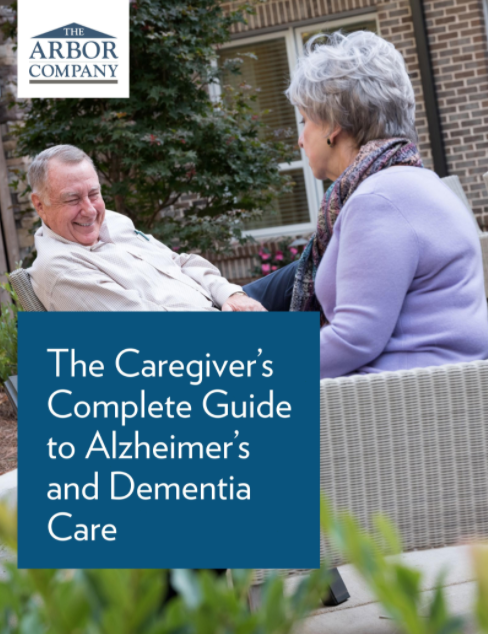Effective Dementia Treatment Approaches for a Better Lifestyle
In the world of dementia treatment, the execution of effective approaches is vital for boosting the lifestyle for both individuals impacted by the illness and their caretakers. Comprehending the distinctive phases of dementia permits customized treatments that address the developing requirements of patients-- from advertising cognitive involvement in the onset to making certain dignity in late-stage care. Moreover, the significance of interaction techniques and a supportive atmosphere can not be overemphasized. What particular approaches can be embraced to promote an ambience of concern and connection throughout this tough journey?
Understanding Mental Deterioration Stages

In the onset, people may experience moderate amnesia and difficulty with familiar tasks. Treatment approaches must concentrate on maintaining independence and supplying cognitive stimulation. The center phase is identified by raised confusion, trouble acknowledging liked ones, and damaged judgment. Throughout this phase, caretakers ought to apply structured regimens and make certain a risk-free atmosphere. Ultimately, in the late stage, people may lose the capability to require and communicate help with daily tasks. Here, thoughtful treatment is crucial, emphasizing comfort and dignity.
Acknowledging these stages enables caregivers to adjust their methods and provide support that aligns with the individual's existing demands, ultimately promoting far better management of the problem and improving the overall caregiving experience. Comprehending dementia phases is for that reason a fundamental aspect of effective dementia treatment.
Interaction Methods
Reliable interaction is an important component of mental deterioration care, specifically as the illness progresses with its numerous phases. As cognitive abilities decline, it ends up being important to adjust interaction techniques to satisfy the requirements of people with mental deterioration. Making use of clear, basic language is essential; caregivers should avoid intricate sentences and jargon, choosing rather for straightforward, concise expressions.
Non-verbal communication plays an equally considerable function. Facial expressions, motions, and intonation can share warmth and understanding, often boosting spoken messages. Keeping eye contact and an open pose cultivates a sense of connection and safety, urging people with mental deterioration to involve more totally in discussions.
It is likewise valuable to hold your horses and enable enough time for reactions. Individuals may call for extra time to process details and formulate their ideas. Duplicating or putting in other words inquiries might be necessary if comprehension appears doing not have.
Finally, concentrating on the individual's rate of interests and personal background can facilitate more purposeful interactions. Participating in familiar subjects can stimulate favorable memories and emotions, better enhancing the interaction experience (memory care facility charlotte). By employing these methods, caretakers can substantially enhance the high quality of communications, promoting dignity and regard for people living with dementia
Producing a Safe Atmosphere
Producing a secure environment for individuals with dementia is crucial to advertising their wellness and independence. A properly designed space can significantly minimize the threats of accidents and enhance the quality of life for those impacted by this condition.
Illumination plays a vital function also; making use of natural light any place possible and including evening lights can assist people navigate their surroundings securely. Furthermore, labeling spaces and vital things can aid memory and orientation, lowering complication and stress and anxiety.
It is also important to produce a familiar environment by personalizing the room with photographs or valued things, which can stimulate positive memories and a feeling of belonging.
Integrating furniture that is both practical and comfy contributes to a helpful environment, enabling people to engage in day-to-day tasks with ease. Ultimately, a safe environment not just safeguards against physical threats but additionally fosters a complacency, which is essential for the psychological well-being of those coping with dementia.
Engaging Regimens and tasks
Engaging activities and organized routines are essential elements in the care of individuals with mental deterioration, as they promote cognitive feature, psychological stability, and social interaction. Visit This Link These activities need to be tailored to the individual's passions, abilities, and phase of cognitive decline. memory useful site care facility charlotte. Straightforward, repeated tasks such as horticulture, arts and crafts, or food preparation can supply significant involvement, allowing people to utilize their abilities while promoting a feeling of accomplishment
Developing a day-to-day routine helps create a foreseeable environment, which can minimize anxiety and complication. This structure can include assigned times for meals, tasks, and remainder, making sure a well balanced method to life. Incorporating social interactions into these regimens, such as team tasks or visiting family members, further enhances psychological wellness and fights feelings of isolation.
Moreover, physical activities, such as strolling or dancing, not only promote physical health and wellness but likewise boost psychological interaction. Urging participation in area occasions or assistance groups can provide additional chances for socializing. Generally, the integration of engaging tasks and organized routines is important in improving the top quality of life for people with mental deterioration, fostering independence and dignity while addressing their distinct requirements.
Sustaining Caregiver Well-Being
Taking care of individuals with dementia can be a demanding and emotionally exhausting experience, making it necessary to focus on the health of caretakers. Caregivers usually deal with high degrees of tension, stress and anxiety, and physical exhaustion, which can bring about exhaustion otherwise resolved properly. To sustain their well-being, it is crucial to execute a diverse strategy.
First, offering caretakers with accessibility to education and learning and resources can empower them with strategies to manage daily difficulties. Support system, both in-person and online, offer a system for sharing experiences, cultivating a feeling of area, and reducing feelings of seclusion. Furthermore, home respite care services make it possible for caretakers to take essential breaks, allowing them time to participate in and reenergize to their very own wellness requirements.
Moreover, urging caregivers to involve in self-care practices-- such as regular exercise, healthy eating, and mindfulness-- can significantly enhance their resilience. Advertising open communication regarding their sensations and difficulties with member of the family or experts additionally aids alleviate psychological concerns.
Conclusion
To conclude, reliable mental deterioration treatment approaches include a thorough understanding of the condition's phases, the application of clear communication techniques, the establishment of a secure environment, and the promotion of engaging activities and organized routines. Furthermore, focusing on the wellness of caregivers is vital to maintaining quality care. By integrating these strategies, the total top quality of life for individuals with dementia can be dramatically enhanced, cultivating a helpful ambience that promotes dignity and psychological wellness.
In the world of dementia care, the implementation of effective techniques is crucial for enhancing the high quality of life for both individuals affected by the condition and their caretakers. By employing these methods, caretakers can substantially enhance the high quality of communications, promoting dignity and regard for people living with mental deterioration.

Caring for people with dementia can be a demanding and psychologically exhausting experience, making it important to prioritize the health of caregivers.
 Ralph Macchio Then & Now!
Ralph Macchio Then & Now! Rick Moranis Then & Now!
Rick Moranis Then & Now! Angus T. Jones Then & Now!
Angus T. Jones Then & Now! Kirk Cameron Then & Now!
Kirk Cameron Then & Now! Talia Balsam Then & Now!
Talia Balsam Then & Now!